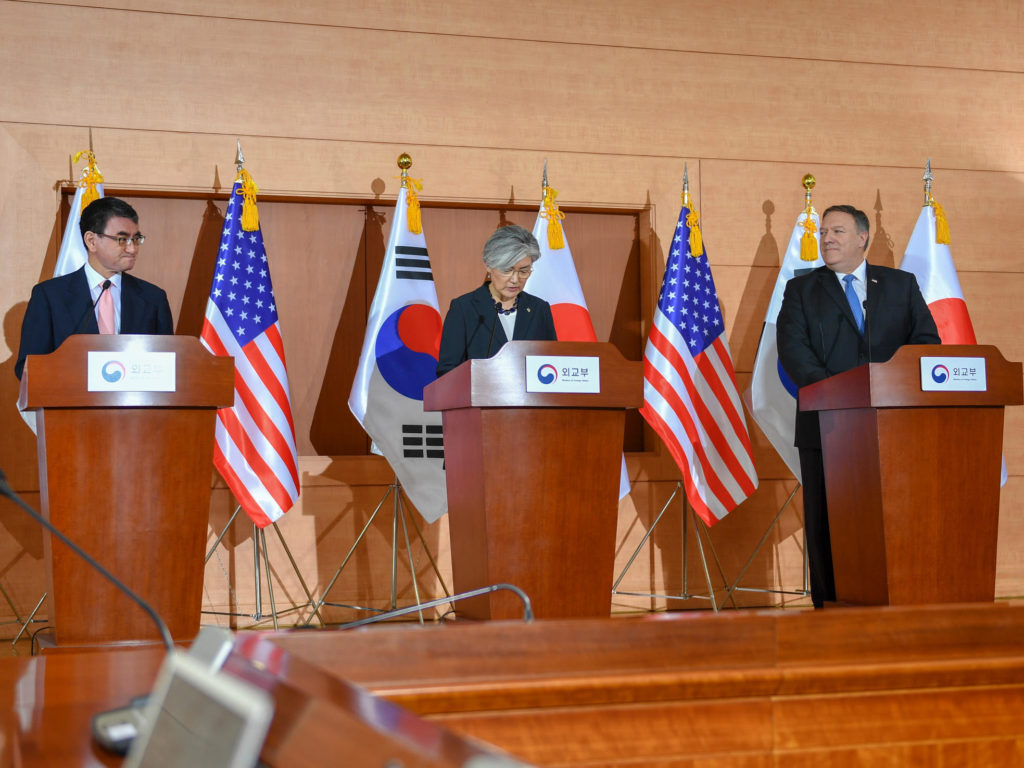The Peninsula
Coronavirus Worsens Korea-Japan Tensions

This briefing comes from Korea View, a weekly newsletter published by the Korea Economic Institute. Korea View aims to cover developments that reveal trends on the Korean Peninsula but receive little attention in the United States. If you would like to sign up, please find the online form here.
What Happened
- Four Japanese citizens were prevented from boarding a plane destined for South Korea on March 9, the first day of South Korea’s travel ban on Japanese from entering the nation.
- Japan, along with five other nations, banned foreigners from entering the country if they had visited certain hotspots such as
- Daegu, Cheongdo county, and North Gyeongsang Province.
- New measures from the Japanese government included the suspension of a 90-day visa-free program for Koreans.
- As of March 13, a total of 123 countries and territories were restricting entry or enforcing tougher quarantine measures for people from South Korea.
Implications: The South Korean government’s responses to Tokyo’s new travel restrictions suggest that bilateral relations continue to suffer from tensions stemming from Japan’s reaction to the Korean court upholding the legitimacy of reparations claims by victims of forced labor during WWII. While 123 countries and territories have imposed varying levels of restrictions, Seoul has only imposed reciprocal travel restrictions on Japan. This unprecedented measure not only demonstrated how pathological pressures may be further damaging frayed relations but also revealed that countries in the region are still not coordinating their responses to the pandemic.
Context: Japan’s reaction to the pandemic strikes a contrast with how the U.S. government has approached travelers from Korea. While people who visited hotzones like Daegu are being quarantined, the U.S. government has not revoked its visa-free travel for Korean nationals.
Korea View was edited by Yong Kwon with the help of Gordon Henning, Soojin Hwang, Hyungim Jang, and Ingyeong Park.
Image from the U.S. State Department flickr account.
